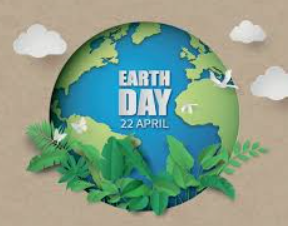Earth Day, a globally recognized event celebrated every April 22nd, serves as a poignant reminder of the critical importance of environmental conservation and sustainable living practices. Born out of a growing concern for the deteriorating state of our planet, Earth Day has evolved into a platform for raising awareness, inspiring action, and advocating for policies that promote ecological balance and protect the natural world.
The concept of Earth Day emerged during a time of heightened environmental awareness in the late 1960s and early 1970s. The industrial revolution had brought about unprecedented economic growth and technological advancements, but it had also unleashed widespread pollution, deforestation, and habitat destruction. Rachel Carson's groundbreaking book "Silent Spring," published in 1962, exposed the devastating impact of pesticides on the environment and ignited a wave of public consciousness about the need to protect our planet.
The first Earth Day was organized on April 22, 1970, by Senator Gaylord Nelson of Wisconsin, who sought to harness the energy of the burgeoning environmental movement to raise awareness about environmental issues and urge policymakers to take action. What started as a grassroots movement in the United States quickly gained momentum, with millions of people participating in rallies, marches, and educational events across the country.
Since then, Earth Day has grown into a global phenomenon, with over 190 countries participating in various activities to promote environmental sustainability and address pressing environmental challenges. Each year, Earth Day is marked by a specific theme or focus area, ranging from climate change and biodiversity conservation to plastic pollution and renewable energy.
One of the defining features of Earth Day is its emphasis on grassroots activism and community engagement. People from all walks of life come together to clean up litter, plant trees, organize recycling drives, and advocate for environmentally responsible policies at the local, national, and international levels. These collective efforts not only contribute to tangible improvements in the environment but also foster a sense of solidarity and shared responsibility for the planet.
Education also plays a crucial role in Earth Day celebrations, as organizers strive to raise awareness about environmental issues and inspire individuals to make sustainable lifestyle choices. Schools, universities, and environmental organizations organize workshops, seminars, and educational campaigns to inform people about the importance of conserving natural resources, reducing carbon emissions, and protecting wildlife habitats.
Furthermore, Earth Day serves as a catalyst for policy change, as governments and policymakers around the world are pressured to enact legislation and implement initiatives that promote environmental protection and sustainability. From the landmark Paris Agreement on climate change to local ordinances banning single-use plastics, Earth Day has been instrumental in shaping environmental policies and galvanizing public support for environmental action.
In recent years, the focus of Earth Day has expanded to encompass broader social and environmental justice issues, recognizing the interconnectedness of environmental degradation with issues such as poverty, inequality, and human rights. Environmental activists and advocates increasingly emphasize the need for an inclusive and equitable approach to environmental conservation that addresses the needs and concerns of marginalized communities.
Looking ahead, Earth Day remains as relevant and urgent as ever in the face of escalating environmental crises such as climate change, biodiversity loss, and pollution. As the global community grapples with these complex challenges, Earth Day serves as a rallying cry for collective action and a reminder of our shared responsibility to protect and preserve the precious resources of our planet for future generations.
In conclusion, Earth Day is a testament to the power of collective action and grassroots activism in addressing environmental challenges and promoting sustainability. It is a day to celebrate the beauty and diversity of our planet, while also acknowledging the pressing need to protect and preserve its fragile ecosystems. As we commemorate Earth Day each year, let us renew our commitment to stewardship of the Earth and work together towards a more sustainable and resilient future for all.

